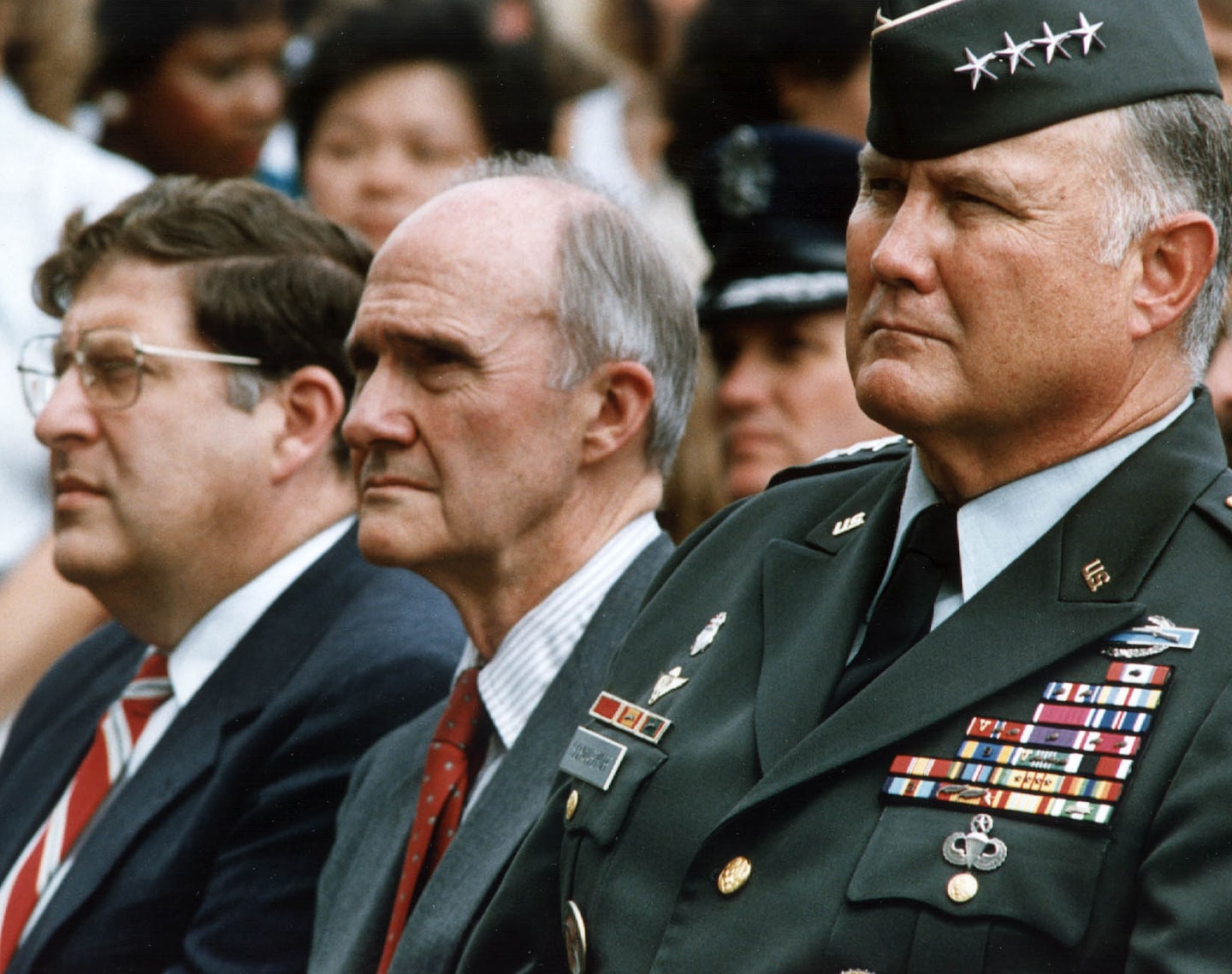Brent Scowcroft embodied the American belief in putting the country first

Scowcroft, who died Thursday at 95, was beloved by Republican and Democratic colleagues in a way that is rare in Washington. As national security adviser to Presidents Gerald R. Ford and George H.W. Bush, he embodied the qualities of integrity and competence we most value in public servants, but too rarely find.
Scowcroft taught a generation how to manage foreign policy. His “honest broker” approach of presenting options to the president was so obviously sensible that it became known as “the Scowcroft model,” and every national security adviser since has claimed to embrace it.
What made Scowcroft so unusual? Partly, it was his gentle manner, which often hid his disciplined analytical mind and iron will. Born in Utah, he had a Westerner’s habit of reticence; he would let others talk through an issue and he’d conclude with a few final words — which usually offered a devastating summary of what made sense and what didn’t.
As Scowcroft’s health began to fail four years ago, his friends and former colleagues gathered for a tribute at the Willard Hotel in Washington. It was Nov. 16, 2016, a week after the election of Donald Trump. The room was filled with Cabinet secretaries, former national security advisers — a world of expertise that Scowcroft had mentored and nurtured, many of them anxious about what lay ahead.
One of the hosts that day was Nicholas Burns, a former undersecretary of state and the director of the Aspen Strategy Group, which Scowcroft had helped create in 1984. Burns focused on the quality many in the room admired most: “Your humility in a city of egos … Your adherence to Harry Truman’s maxim: ‘It is amazing what you can accomplish [in Washington] if you do not care who gets the credit.’”
Scowcroft was reluctant, as always, to reply, but he said something unforgettable on the eve of Trump’s presidency: “If you’re asked to serve, please do,” said Scowcroft. “This man needs help badly.” Scowcroft was worried about Trump, but he wanted to protect the nation’s interests.
I had a chance to get to know Scowcroft well, because we worked together on a 2008 book called “America and the World.” It was a compilation of a half-dozen conversations that spring between Scowcroft and Zbigniew Brzezinski, which I moderated. The two former national security advisers were brilliant, distilling a series of nonpartisan recommendations for the next president that hold up to this day.
Scowcroft was convinced that the world was changing, and that U.S. foreign policy needed to adapt. He thought our country would prosper if it aligned with the forces shaping the future, instead of trying to dig in its heels in reaction. He described a global yearning for dignity: “The whole world is changing at once, and this so-called information age is literally transforming the world we all know. We need to think about people’s dignity and how we can improve their well-being, which is what we as a nation are about.”
Though he had served 29 years as a military officer, Scowcroft was wary about committing U.S. troops abroad. Nearly alone among the Republican foreign policy establishment, he opposed President George W. Bush’s invasion of Iraq in 2003. He thought America had been destabilized by 9/11 and that Bush unwisely thought American power could remake the Muslim world.
“Slow down because, you know, war rarely solves problems. War has a momentum of its own,” he said in 2008. He got that right, and he was also correct in warning against too hasty a withdrawal from an Iraq we had shattered. “You can’t pick up a country, create a democracy, turn around and leave. It doesn’t work that way.”
Scowcroft got a few things wrong. He was too hopeful that China’s communist leadership was benign, and that a rising China wouldn’t challenge America. But he would be cautioning now against overdoing our anti-China rhetoric and starting fights we’re not ready to finish, and he’d be correct.
Toward the end of his career, Scowcroft was anguished about the partisanship that was devouring America. In our 2008 conversations, he worried about “destructive” arguments and deepening “bitterness.” He embodied, in a way that few people do, the abiding American belief in putting the country first.
Read more:






